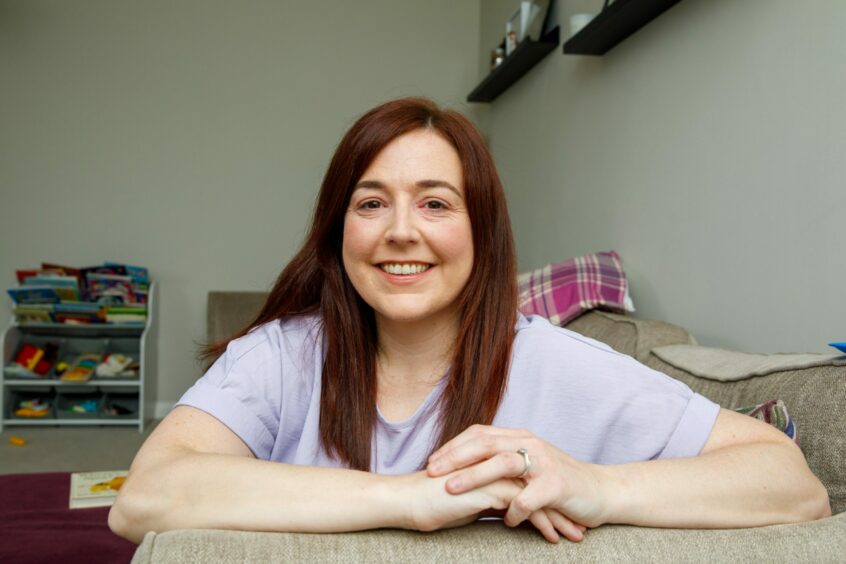
Katie Nicol thought her life was over when she learned she would be getting a stoma bag.
The mum-of-one from Dunfermline knew nothing about stomas and was left fearing the worst.
But in the end the operation went better than she could ever have imagined.
“My stoma changed my life and I think it saved my life,” she said.
“My bowel was so severe and so if it had perforated I would have been poisoned.
“I really don’t think I would have been here without that operation.”
The surgery proved to be life-changing for Katie, who was 31 at the time.
“Living with colitis was horrible,” she explained.
“I had to cancel plans all the time and had sick days off work.
“But when I had my stoma, most of the colitis was taken out of my body.
“It was amazing because I could do all the things I wanted to do and didn’t have to cancel plans anymore.”
Katie is sharing her story following the recent launch of the The IBD UK Patient Survey.
The survey, which closes next month, is offering an opportunity for everyone living with Inflammatory Bowel Disease (IBD) to anonymously share their experiences.
This is so IBD UK can establish the first comprehensive picture of IBD care and treatment in the UK since the pandemic.
It is the first step towards improving IBD services for people like Katie.
When was Katie diagnosed with ulcerative colitis?
Katie was diagnosed with ulcerative colitis in December 2018 at the age of 30.
Crohn’s disease and Ulcerative Colitis – commonly referred to as Inflammatory Bowel Disease (IBD) – are long-term conditions which inflame the gut.
Over 50,000 or 1 in 103 people in Scotland are currently living with Crohn’s or Colitis.
And research from Crohn’s & Colitis UK shows the rates of IBD are higher than previously thought – with Scotland found to have the highest rates in the UK.
Symptoms of IBD include a sore stomach, recurring diarrhoea, weight loss and extreme tiredness.
If these aren’t treated, they can lead to complications.
Katie revealed that she had bowel issues for most of her life, but her symptoms worsened when she was in her mid-20s.
She said: “I was 24, having really bad stomach pains and going to the toilet more often.
“But it was quite difficult to get a diagnosis, especially being a woman and going to the doctor saying I have a sore stomach because they think it is your hormones or it’s related to your period.
“This is what I was met with every time.
“Inflammatory bowel disease (IBD) is quite hard to diagnose.”
Difference between IBD and IBS
Katie had been going to the doctors once every six months with stomach pains but was told she had Irritable Bowel Syndrome (IBS). She was advised to cut out dairy and wheat from her diet.
Irritable bowel syndrome is classified as a functional gastrointestinal disorder. This means there is some type of disturbance in bowel function. Symptoms can include chronic and persistent abdominal pain and constipation alternating with diarrhoea.
Whereas while IBD can have similar symptoms to IBS, IBD causes destructive inflammation and permanent harm to the intestines.
Katie’s condition worsened
In 2016, Katie tried going dairy-free for the next two years but things worsened in August/September 2018.
“I started seeing blood and mucus in the toilet when I was going and it was really frequent, more than 15 times a day,” she explained.
“I just knew something wasn’t right.”
Katie ended up seeing a female locum doctor who arranged for a stool sample to be sent away to check the inflammation levels.
“They came back very high and she thought I had some form of IBD.
“I was then put on the waiting list to see the IBD team at the Western General Hospital in Edinburgh.”
Katie’s diagnosis and surgery
Katie was given medication to help manage her condition.
But, in October 2019, her colitis ended up spreading throughout her large bowel and it was at the point her bowel was ready to burst.
And she had to have emergency surgery.
“I was having severe stomach pains. I couldn’t sit, I couldn’t lie and I was pacing the room. It was almost like I was in labour!
“It was an urgency every time I needed to go to the toilet and I was going up to 30 times a day. I have never felt pain like it in my life.”
Katie said she only had 20 hours notice that she would be getting a stoma bag.
“After a camera was put in and they could see how bad my bowel was, they said I would be getting my stoma the next day.”
She continued: “I was a bit like ‘Oh my god, this is going to end my life’.”
Looking at stoma surgery more positively
For the surgery, Katie explained that they removed her large bowel and took part of her small bowel through her abdomen on the right hand side to form a stoma and attach an ileostomy bag.
She said that part of her rectum, which still had colitis in it, was left in case she later wanted to have reversal surgery. Katie was then given medication to help manage her condition.
Katie believes she wouldn’t be alive today without the surgery.
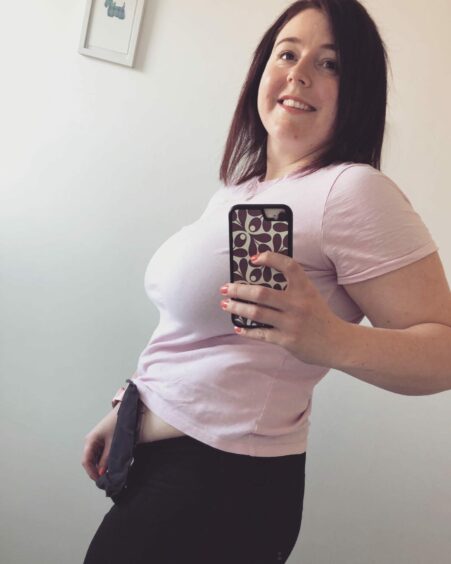
“When I looked at the stoma after the surgery I just thought wow this is a big change and it is going to be very hard for me to accept this,” she said.
“So I had to put in a lot of work to accept it was now part of me and who I was.
“But one thing which I did realise very quickly was just how it made me feel so much better.”
She continued: “Don’t get me wrong I did have bad days where I just cried and thought why is this happening to me. And then other days I would think ‘today I am going to be positive and I am going to accept it.”
How Katie embraced ‘a new way of poo-ing’
“You have a new way of poo-ing basically. You have a bag and you have to change your bag and empty it.
“It was this new routine I had to get my head around.”
Katie said she had three months off work after the operation when she was able to start accepting the change to her body.
But the main thing she kept at the front of her mind was how well she now felt.
“Before the operation I was really ill and I felt amazing afterwards, even two days after the surgery. It was the best I had felt for years and that kept me going.”
Stoma reversal surgery
Katie had her daughter, Sophia, 2, in January 2021.
And she had been hoping to have another baby.
But in August 2022 she started needing to go to the toilet more frequently as a matter of urgency. So she was advised to have the reversal surgery before getting pregnant again.
Eight weeks ago Katie had the operation to have her stoma reversed and create a J-Pouch, which was formed inside her from her small bowel. As a result, she is now able to go to the toilet as normal.
“In my colitis days if I was out and about I would need to know where the toilets were. It was all quite anxiety-provoking. But now when I need to go to the toilet I can control it.
“It’s a strange feeling needing to go but being able to hold it for a couple of hours. It’s mind-blowing!”
Having the support of family and friends
Katie, who works for the charity, Muirhouse Youth Development Group in north Edinburgh, credits the support of her family and friends for helping her through the last few years, particularly her husband, Craig.
She said: “Bowel issues when you are in a relationship is a bit embarrassing. We got married in March 2018 and it was in the December of that year I was diagnosed.
“When I got my stoma I was worried about how it would impact my relationship but Craig was just amazing. He was like ‘let me have a look’ and ‘let me know how to change your bag.’
“He was like ‘I don’t care, I love you, it hasn’t bothered me.”
Katie believes it is important for anyone getting the surgery to have a stoma bag to speak to others who have experienced it, if they can.
She said “I would say do your reading and speak to someone who has been through it.
“Stoma nurses have people you can talk to and the stoma team is very supportive.
“I would say the surgery is life changing, not life-limiting.
Sarah Sleet, CEO of Crohn’s & Colitis UK, said: “It’s fantastic that Katie has been so open and honest about her condition.
“If you’re experiencing blood in your poo, tummy pain or frequent, urgent diarrhoea, then the symptom checker on our website is a good place to start.”
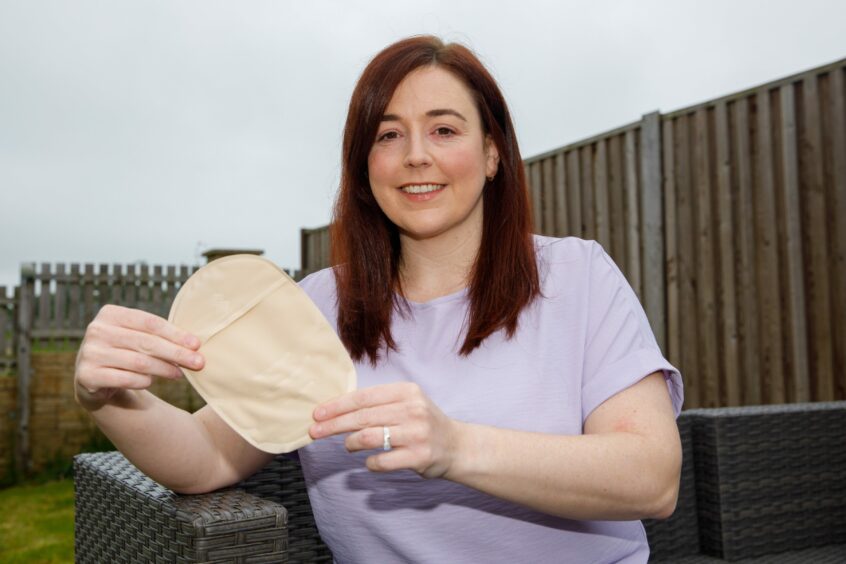
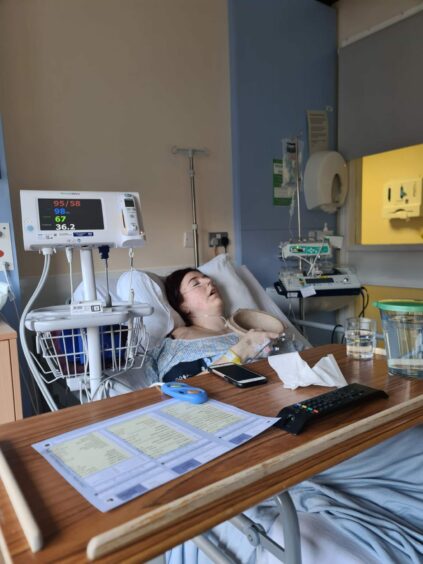
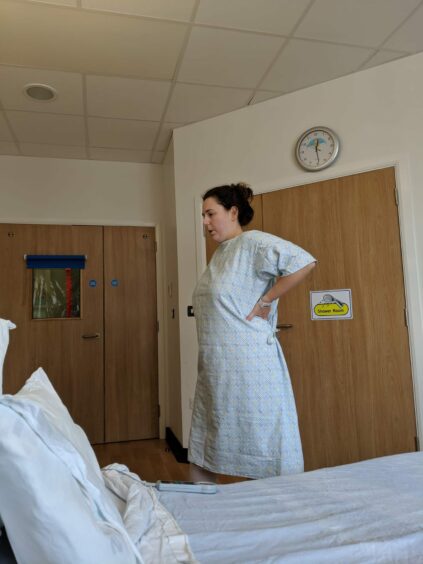
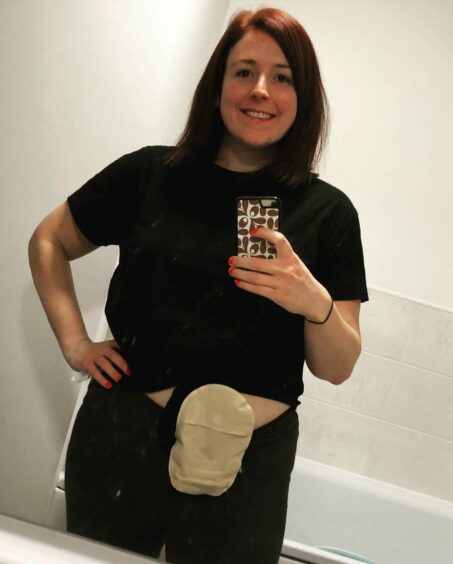
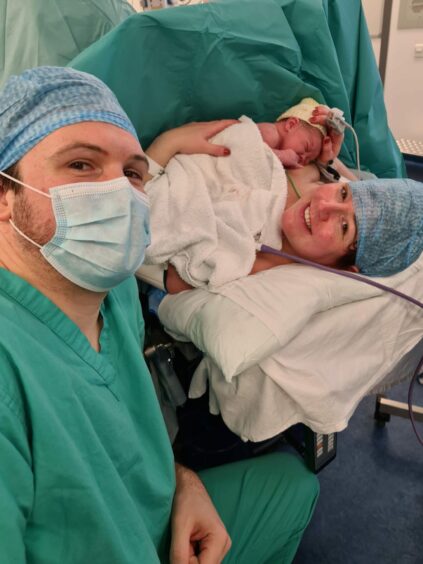
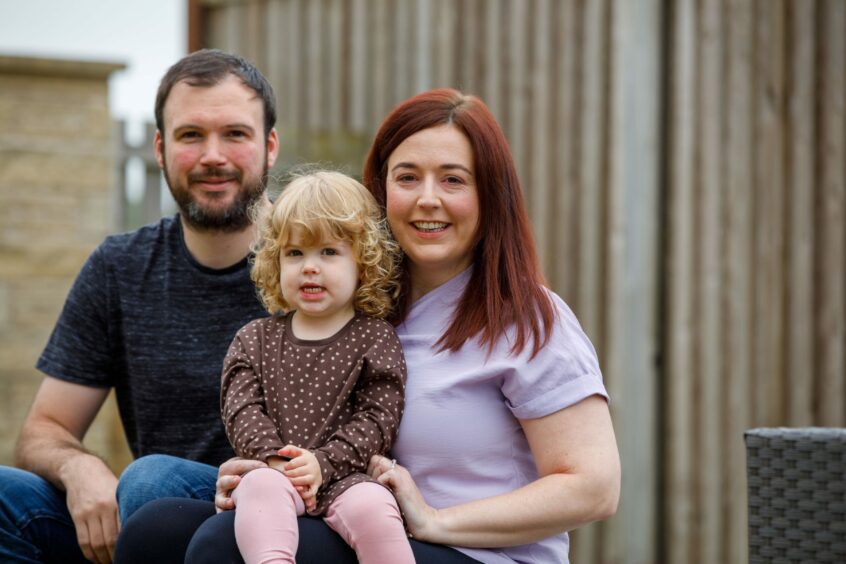
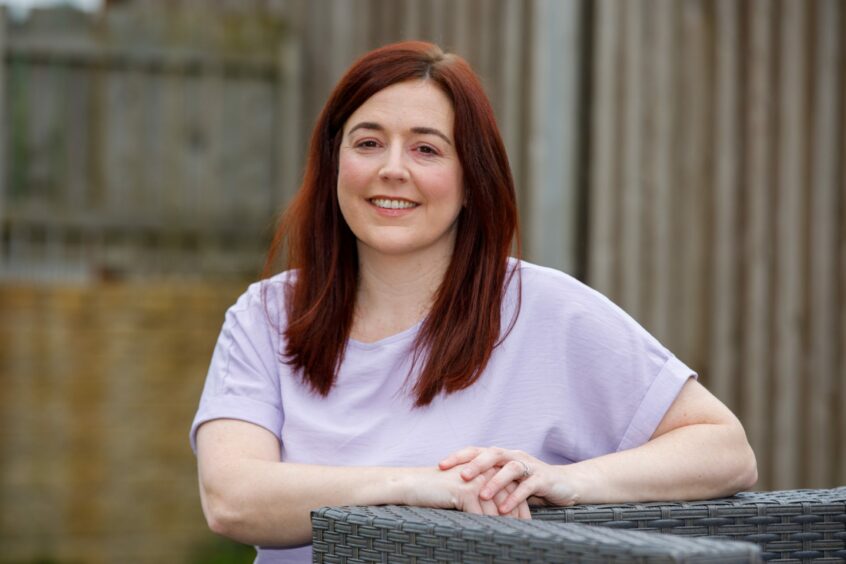
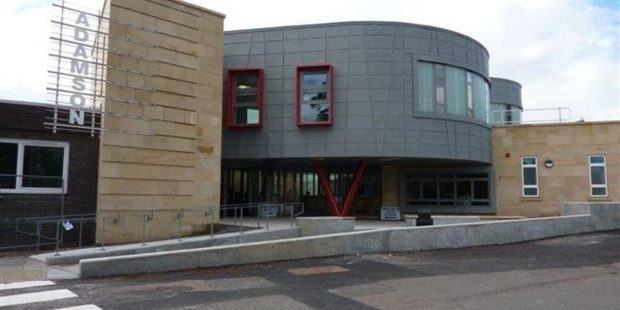
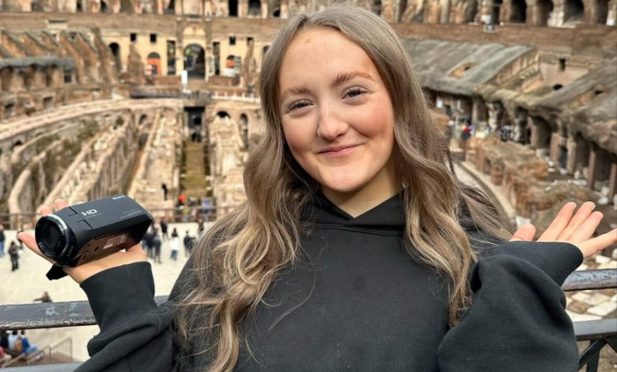


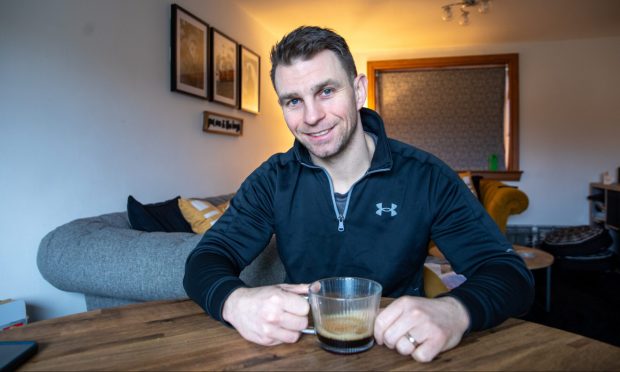

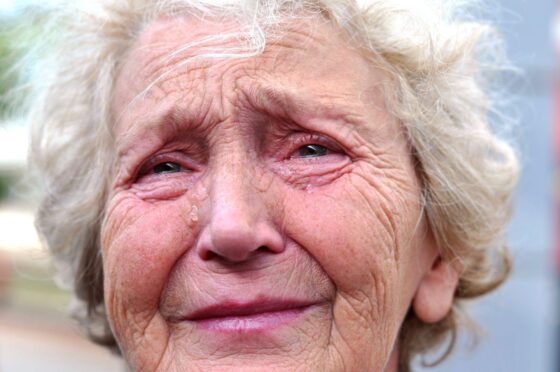
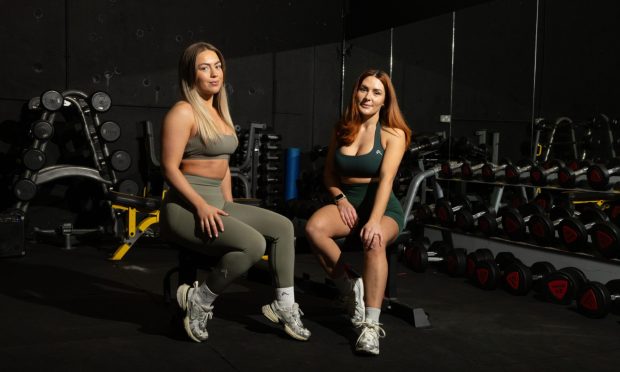
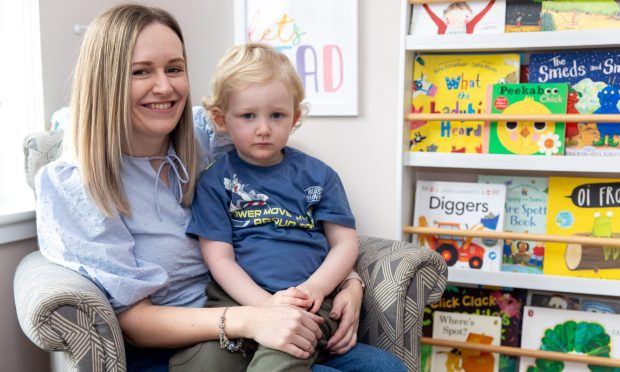
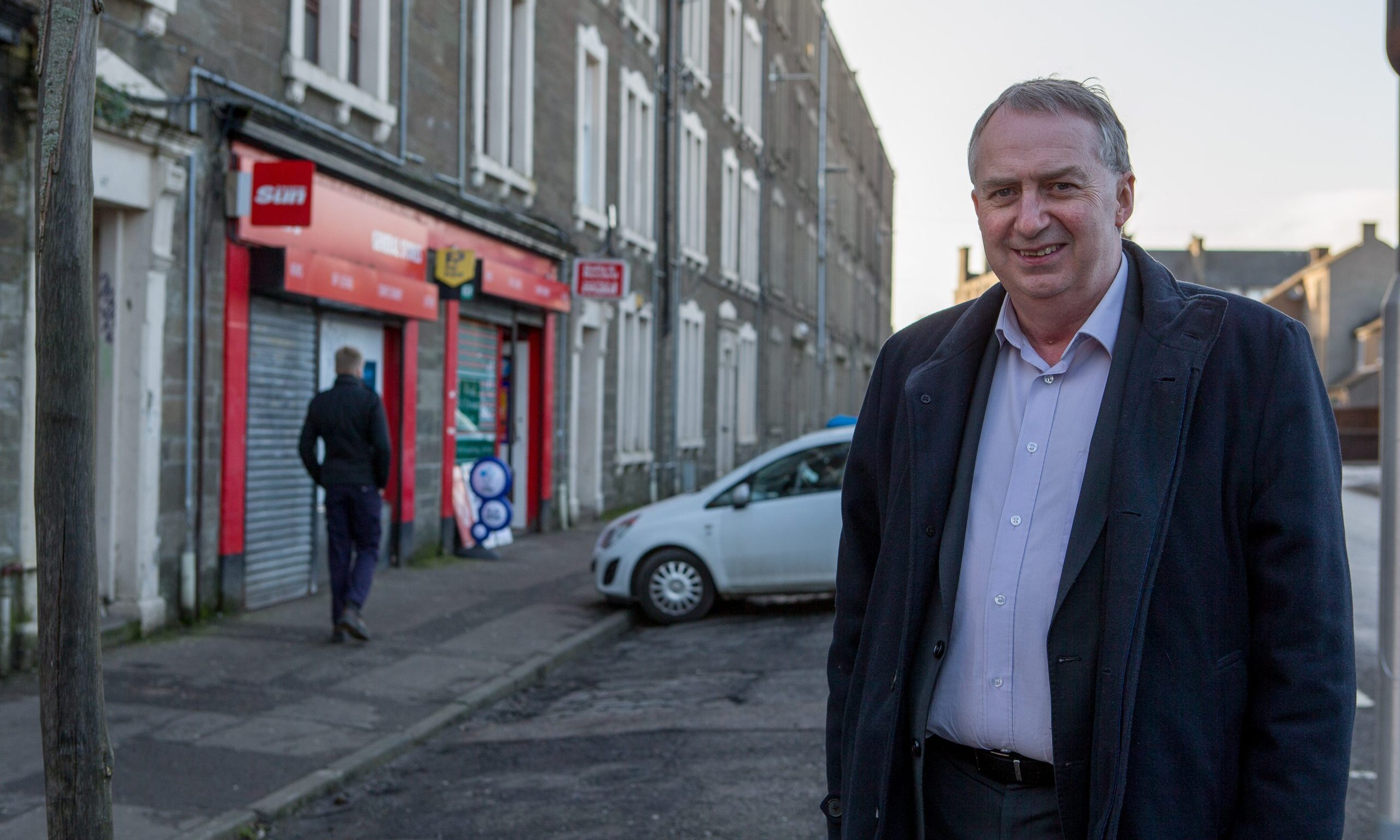
Conversation